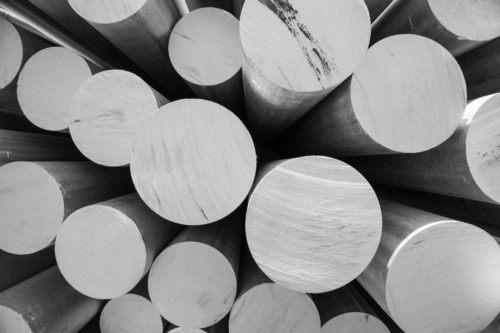The smart Trick of Stahl Specialty Company That Nobody is Discussing
The smart Trick of Stahl Specialty Company That Nobody is Discussing
Blog Article
What Does Stahl Specialty Company Do?
Table of ContentsThe Of Stahl Specialty CompanyRumored Buzz on Stahl Specialty CompanyHow Stahl Specialty Company can Save You Time, Stress, and Money.The 9-Second Trick For Stahl Specialty CompanyThe Facts About Stahl Specialty Company Revealed
The refined difference hinges on the chemical material. Chemical Comparison of Cast Aluminum Alloys Silicon advertises castability by lowering the alloy's melting temperature and improving fluidness throughout spreading. It plays a vital role in enabling detailed mold and mildews to be filled up accurately. In addition, silicon adds to the alloy's stamina and put on resistance, making it important in applications where resilience is important, such as automotive components and engine elements.It additionally improves the machinability of the alloy, making it simpler to process into ended up items. By doing this, iron adds to the overall workability of aluminum alloys. Copper enhances electric conductivity, making it helpful in electric applications. It additionally improves rust resistance and contributes to the alloy's overall stamina.
Manganese adds to the toughness of light weight aluminum alloys and enhances workability. It is generally made use of in functioned light weight aluminum products like sheets, extrusions, and accounts. The existence of manganese aids in the alloy's formability and resistance to splitting during construction processes. Magnesium is a lightweight element that gives toughness and influence resistance to aluminum alloys.
Zinc boosts the castability of aluminum alloys and assists regulate the solidification process during casting. It boosts the alloy's strength and hardness.
The smart Trick of Stahl Specialty Company That Nobody is Discussing
Due to the fact that aluminum-silicon alloys have great casting residential properties, high gas residential properties, straightforward processes, and exceptional rust resistance, aluminum-silicon alloys are most frequently made use of in the die-casting market in the house and abroad. At the same time, aluminum-silicon alloys are additionally reasonably early and commonly recognized alloys established and used in die-casting. After constant study and renovation, many of the current worldwide mainstream aluminum-silicon alloys have actually been finalized and are nothing even more than A356, A360, A380, ADC12, B390, and A413.
The main thermal conductivity, tensile toughness, yield strength, and elongation differ. Amongst the above alloys, A356 has the greatest thermal conductivity, and A380 and ADC12 have the cheapest.

Getting My Stahl Specialty Company To Work
In precision spreading, 6063 is well-suited for applications where complex geometries and premium surface area finishes are paramount. Examples consist of telecommunication enclosures, where the alloy's exceptional formability permits sleek and cosmetically pleasing designs while preserving architectural honesty. In a similar way, in the Illumination Solutions market, precision-cast 6063 components create elegant and reliable illumination fixtures that need elaborate shapes and great thermal performance.
(https://issuu.com/stahlspecialc)
It leads to a finer surface coating and much better rust resistance in A360. The A360 exhibits remarkable prolongation, making it perfect for facility and thin-walled parts. In accuracy spreading applications, A360 is fit for sectors such as Customer Electronics, Telecommunication, and Power Tools. Casting Foundry. Its boosted fluidness permits elaborate, high-precision parts like smart device coverings and interaction tool real estates.

In precision spreading, light weight aluminum 413 radiates in the Consumer Electronic Devices and Power Equipment industries. This alloy's exceptional deterioration resistance makes it an excellent option for outdoor applications, making certain durable, durable items in the stated markets.
The Definitive Guide for Stahl Specialty Company
As soon as you have actually determined that the aluminum die casting process appropriates for your task, an essential next action is picking the most appropriate alloy. The light weight aluminum alloy you pick will substantially influence both the casting process and the residential or commercial properties of the end product. Due to the fact that of this, you must make your decision meticulously and take an enlightened strategy.
Figuring out the most ideal light weight aluminum alloy for your application will certainly mean weighing a large range of qualities. These comparative alloy qualities follow the North American Pass Away Spreading Organization's standards, and we have actually separated them into 2 classifications. Foundry. The initial classification addresses alloy characteristics that impact the manufacturing procedure. The 2nd covers attributes affecting the residential or commercial properties of the end product.
The alloy you select for die casting directly impacts numerous elements of the casting process, like exactly how simple the alloy is to deal with and if it is vulnerable to casting flaws. Warm fracturing, additionally known as solidification breaking, is a normal die casting defect for light weight aluminum alloys that can result in internal or surface-level splits or fractures.
Getting My Stahl Specialty Company To Work
Particular aluminum alloys are extra at risk to warm fracturing than others, and your option needs to consider this. An additional usual flaw discovered in the die spreading of aluminum is pass away soldering, which is when the cast sticks to the die wall surfaces and makes ejection hard. It can harm both the actors and the die, so you need to seek alloys with high anti-soldering properties.
Rust resistance, which is already a noteworthy feature of light weight aluminum, can differ substantially from alloy to alloy and is a crucial particular to think about depending upon the environmental problems your product will be exposed to. Use resistance is another residential or commercial property commonly looked for in aluminum items and can distinguish some alloys.
Report this page